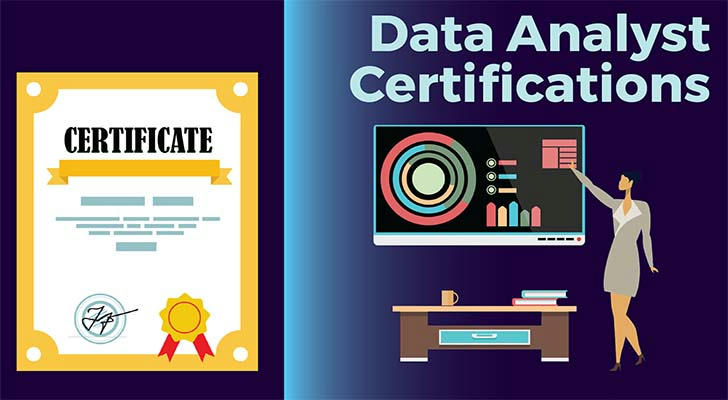Data Analyst Certification: The Key Path to Opening the Door to a Data Career
In the era of rapid development of the digital economy and artificial intelligence, data analysts, as an important role in connecting data and business value, are in growing demand. For professionals who want to enter the field of data analysis, obtaining an authoritative data analyst certification can not only improve professional skills, but also enhance workplace competitiveness. This article will introduce in detail the types of data analyst certifications, examination processes, preparation suggestions and their career value, and combine real cases to help American job seekers fully understand the importance and practical significance of data analyst certifications.

1. The significance and value of data analyst certification
Data analyst certification is an authoritative recognition of personal data processing, analysis, interpretation and reporting capabilities. Certification not only proves that the holder has solid skills in data collection, cleaning, analysis, visualization and business reporting, but also reflects his professional qualities in abiding by professional ethics and industry standards.
Professionals with data analyst certification are usually more favored by companies, especially in the Internet, finance, consulting, telecommunications, retail, medical, tourism and other industries. Certification helps job seekers stand out in the fierce job market and obtain higher salaries and broader career development space. In addition, the certification system usually covers the latest data science technology and industry trends, helping certificate holders to maintain continuous learning and improve their capabilities.
2. Introduction to mainstream data analyst certification
CDA (Certified Data Analyst) certification
CDA certification is formulated by an international authoritative organization and covers three levels: LEVEL I, LEVEL II and LEVEL III, suitable for data analysis talents at different stages. The exam content covers data collection, cleaning, processing, analysis, visualization and business report production, emphasizing practical ability and professional ethics. CDA certification is widely used in many industries in the United States and around the world, and certificate holders have the ability to promote digital transformation of enterprises.
Google Data Analytics Professional Certificate
This certificate teaches the basics of data analysis and tool applications such as Excel, SQL and R language through systematic online courses, which is suitable for beginners to get started quickly. After completing the course, obtaining a certificate can prove that you have mastered the core skills of data analysis, which is suitable for professionals who want to change careers or improve their skills.
Microsoft Certified: Data Analyst Associate
Microsoft certification focuses on the application of Power BI tools, suitable for analysts who need to use the Microsoft ecosystem for data visualization and reporting. This certification emphasizes practical operation ability and is suitable for the needs of data analysis positions within enterprises.
SAS Certified Data Scientist
SAS certification covers advanced skills such as data management, statistical analysis, machine learning and artificial intelligence. It is suitable for professionals who have a certain foundation and want to delve into the field of data science. This certification is particularly recognized in the financial and medical industries.
Certified Analytics Professional (CAP)
CAP certification emphasizes analytical process management and business problem solving capabilities. It is suitable for analysts with certain work experience. The certification process is strict and contains case analysis and project management content, reflecting comprehensive capabilities.

3. Detailed explanation of the data analyst certification examination process
Taking CDA certification as an example, the examination process is scientific and standardized:
Registration: Candidates need to log in to the CDA official website, fill in personal information and pay the examination fee.
Review and confirmation: After the registration materials are reviewed and approved, candidates will receive a confirmation email.
Book an exam: Choose the nearest examination room and examination time through the Pearson VUE platform for flexible arrangement.
Take the exam: CDA LEVEL I and II are offline computer-based exams, with an exam duration of 120 minutes and 150 minutes respectively, including multiple-choice questions and case analysis questions. LEVEL III is more difficult and includes case operation questions. The examination time is 210 minutes.
Results release and certificate issuance: LEVEL I and II exams will be released on the spot, and LEVEL III exam results will be released within 7 days. After passing the exam, candidates will receive the Chinese and English certification certificate within 30 days.
4. Exam preparation suggestions and learning resources

Make a reasonable study plan
According to the exam outline, systematically learn the basic knowledge of data analysis, statistics, data cleaning, data visualization and business report writing. Rationally allocate time and focus on breaking through weak links.
Master practical tools
Proficient in using Excel, SQL, Python, R language and data visualization tools (such as Tableau, Power BI) to improve practical operation capabilities.
Participate in mock exams
Test the learning effect through past real questions and mock questions, familiarize yourself with the exam questions and time arrangements, and enhance your confidence in taking the exam.
Use official resources
Pay attention to the latest exam outline and recommended teaching materials released by the certification official website, participate in official training courses or online learning platform courses, and ensure that the learning content is authoritative and cutting-edge.
5. Sharing of real cases
Case 1: Michael's career transformation
Michael was originally a marketing specialist. After realizing the importance of data-driven decision-making, he signed up for the CDA LEVEL I certification exam. Through systematic learning of data analysis skills and practical cases, he successfully passed the exam and obtained the certification certificate. Later, Michael successfully transferred to a data analyst with the certification and project experience, and his annual salary increased by 30%, and his career development space was significantly expanded.

Case 2: Internal training in the enterprise promotes certification
In order to improve the team's data capabilities, a financial technology company organized employees to participate in Microsoft Certified: Data Analyst Associate certification training. Through certification, team members mastered the advanced functions of Power BI, optimized the data reporting process, improved project efficiency and customer satisfaction, and promoted the digital transformation of the enterprise.
6. Career prospects of data analyst certification
Data analyst certification not only improves professional skills, but also opens the door to high-paying positions and management positions. According to the U.S. Bureau of Labor Statistics, data analyst positions are expected to grow by more than 20% in the next decade, far higher than the average. Certification holders are more popular in the recruitment market, and their salary levels are significantly higher than their uncertified counterparts.
In addition, the continuous improvement and updating of the certification system ensures that the skills of the certificate holders keep pace with the development of the industry and have sustainable competitiveness. Whether it is a newcomer to the workplace or an in-service person who wants to improve his skills, data analyst certification is an important boost to career development.
Conclusion
As an important symbol of professional ability and professional quality, data analyst certification has become a necessary qualification for entering the data field. Through systematic learning and examinations, certification not only verifies data analysis skills, but also improves workplace competitiveness and career development potential. Combined with real cases, certification has helped many professionals achieve career transformation and promotion. Facing a data-driven future, choosing the right data analyst certification will open up a broader path for your career.
